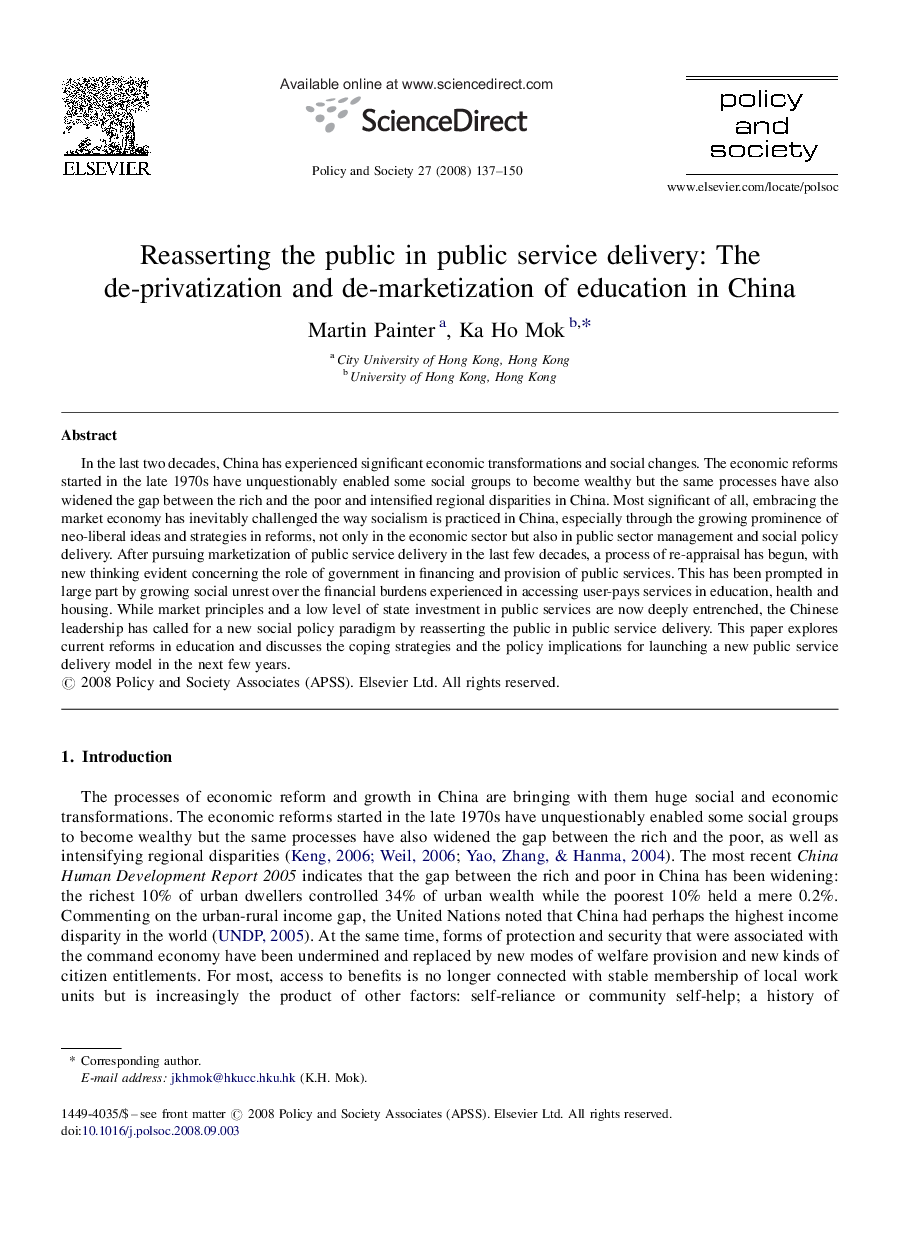| Article ID | Journal | Published Year | Pages | File Type |
|---|---|---|---|---|
| 1061637 | Policy and Society | 2008 | 14 Pages |
In the last two decades, China has experienced significant economic transformations and social changes. The economic reforms started in the late 1970s have unquestionably enabled some social groups to become wealthy but the same processes have also widened the gap between the rich and the poor and intensified regional disparities in China. Most significant of all, embracing the market economy has inevitably challenged the way socialism is practiced in China, especially through the growing prominence of neo-liberal ideas and strategies in reforms, not only in the economic sector but also in public sector management and social policy delivery. After pursuing marketization of public service delivery in the last few decades, a process of re-appraisal has begun, with new thinking evident concerning the role of government in financing and provision of public services. This has been prompted in large part by growing social unrest over the financial burdens experienced in accessing user-pays services in education, health and housing. While market principles and a low level of state investment in public services are now deeply entrenched, the Chinese leadership has called for a new social policy paradigm by reasserting the public in public service delivery. This paper explores current reforms in education and discusses the coping strategies and the policy implications for launching a new public service delivery model in the next few years.
